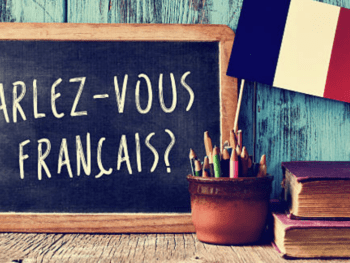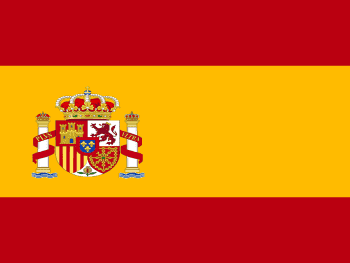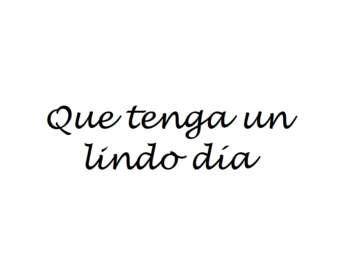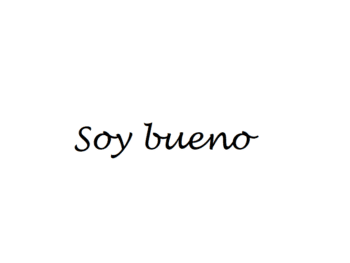How to Say I am Sorry in German One day you are walking through the biggest tourist hotspots in Germany when you bump into the waiter serving your drinks spilling food and water all over the rooms. You need to be able to apologize to rectify this situation. You do this by saying. “I’m sorry”, …
Have A Great Day in French
How To Say Have A Great Day in French Have a great day is usually used as a salutation when wishing a loved one or friend goodbye, but in a unique or remarkable way. From à plus tard meaning see your later to passe une bonne journée meaning have a nice day, there are several …
Good Morning in French
Just like every other country, greeting someone in the morning is customary. In fact, French culture considers greeting first as a polite way to start a conversation when you meet someone. This is why it is crucial to learn this French greeting phrase if you plan to visit a French-speaking country. The common phrase for …
Very Good in German
How to Say Very Good in German “Sehr gut” is German for “very good.” Like everywhere else in the world, you want to know how to to be kind and encouraging to the people around you. Being able to congratulate someone will be a bonus in another country. This a no down side phrase and …
Okay in German
How to Say Ok in German “In Ordnug” is German for Okay. Although like in English they will say “Okay, K (kay), or ok.” Ordunug can translate to many nouns in English such as organized, rules, and order. Saying any of these terms are only in informal settings and never when you are speaking with …
What are you doing in German
How To Say what are you doing in German “Was machst du?” or what are you doing is a common phrase in the German language. And pretty much every other language for that matter. In Germany, they do not use the “ing” endings for describing running verbs. Examples of this are (To run, not running. …
You’re Welcome in French
The French culture pride itself on good etiquettes. From bonjour meaning hello, good morning, or good day, to merci meaning thank you, there’s a greeting for virtually every occasion. In fact, it is proper to answer a thank you with you’re welcome. The common phrase used to say you’re welcome in French is – je …
I Don’t Understand in Spanish
How To Say I Don’t Understand in Spanish No entiendo – I Don’t Understand Examples of using I don’t understand in Spanish Sorry I don’t understand what you are saying Lo siento, no entiendo lo que dices I don’t understand Spanish. Do you speak English? No entiendo español. ¿Habla usted Inglés?
What Are You Doing in French
How to Say What Are You Doing in French At times, you may want to ask about what action a person is doing at the moment or in the near future. The common phrase to politely ask what the person is doing is Qu’est-ce que tu fais? meaning what are you doing in French. Qu’est-ce …
Have a Nice Day in Spanish
How to Say Have a Nice Day in Spanish Spanish culture is one that appreciates respect and courtesy. Even when ending a conversation, saying goodbye, or after offering a service, you are expected to do it pleasantly. The common phrase used to tell someone to have a nice day in Spanish is – que tengas …
My Love in German
How to say My Love in German There is nothing more romantic than being in another country with the one you love. You are in the right place for a memorial trip now you have to have the proper vocabulary. To say “My Love in German.” you would say “Meine Liebe.” You would pronounce this …
Good Afternoon in German
How to Say Good Afternoon in German When greeting one another in Germany you will most likely see most people hand shaking and cheek kissing. In almost all situations hand shaking will suffice holding off on cheek kissing for family or people you know well. When greeting someone in the afternoon, past 12:00 pm, you …
Very Good in French
How to Say Very Good in French Very good or OK are often used interchangeably to show approval or agreement. Replying with very good during a conversation shows that you acknowledge what the person is saying to you. The common phrase used to say very good in French is – très bon or très bien. …
Thanks in Spanish
How to Say Thanks in Spanish Just like many other cultures across the world, showing appreciation or expressing gratitude to someone is proper etiquette in Spanish culture. A common phrase used to express gratitude is gracias meaning thanks in Spanish. Gracias – The Spanish greeting phrase gracias is often said to express a grateful feeling, …
Thank You in French
How to Say Thank You in French Expressing gratitude or showing appreciation to somebody that does you a favor is proper etiquette in French culture. A common phrase used to express gratitude is merci meaning thank you in French. Merci– The term merci is the simplest and most common way to show gratitude or give …
OK in French
How to Say OK in French From time to time, especially during a conversation, you may have reasons to say ok or okay. This is to show acknowledgment of what someone is saying or that you are in agreement or approval. The common phrase for ok in French is – D’accord. D’accord – This is …
Have A Good Day in German
How to Say Have A Good Day in German When I was getting ready to vacation in Germany I wanted to be sure I knew how to properly speak with the people around me. It was important to me that I learned how to say anything that would show I was polite and educated. “Have …
I Am Good in French
How To Say I Am Good in French Some of your French-speaking friends may want to inquire about your well-being by asking how you are doing. You’re expected to reply them politely by saying you’re good. The phrase used to say I am good in French is – je vais bien. Je vais bien – …
I Am Good in Spanish
How to Say I Am Good in Spanish When someone asks how you are doing or inquires about your well-being, Spanish culture expects you to reply politely. The common phrase to let the person know that you are in a good state of being is – soy buena (female) or soy bueno (male). Soy Buena …
My Love in French
How to Say My Love in French Many French-speaking countries refer to their significant other as “my love.” The person may be your boyfriend, girlfriend, spouse, or partner. From “good morning my love” to “good afternoon my love”, “goodnight my love,” referring to your significant other as “my love” can be a great way to …




